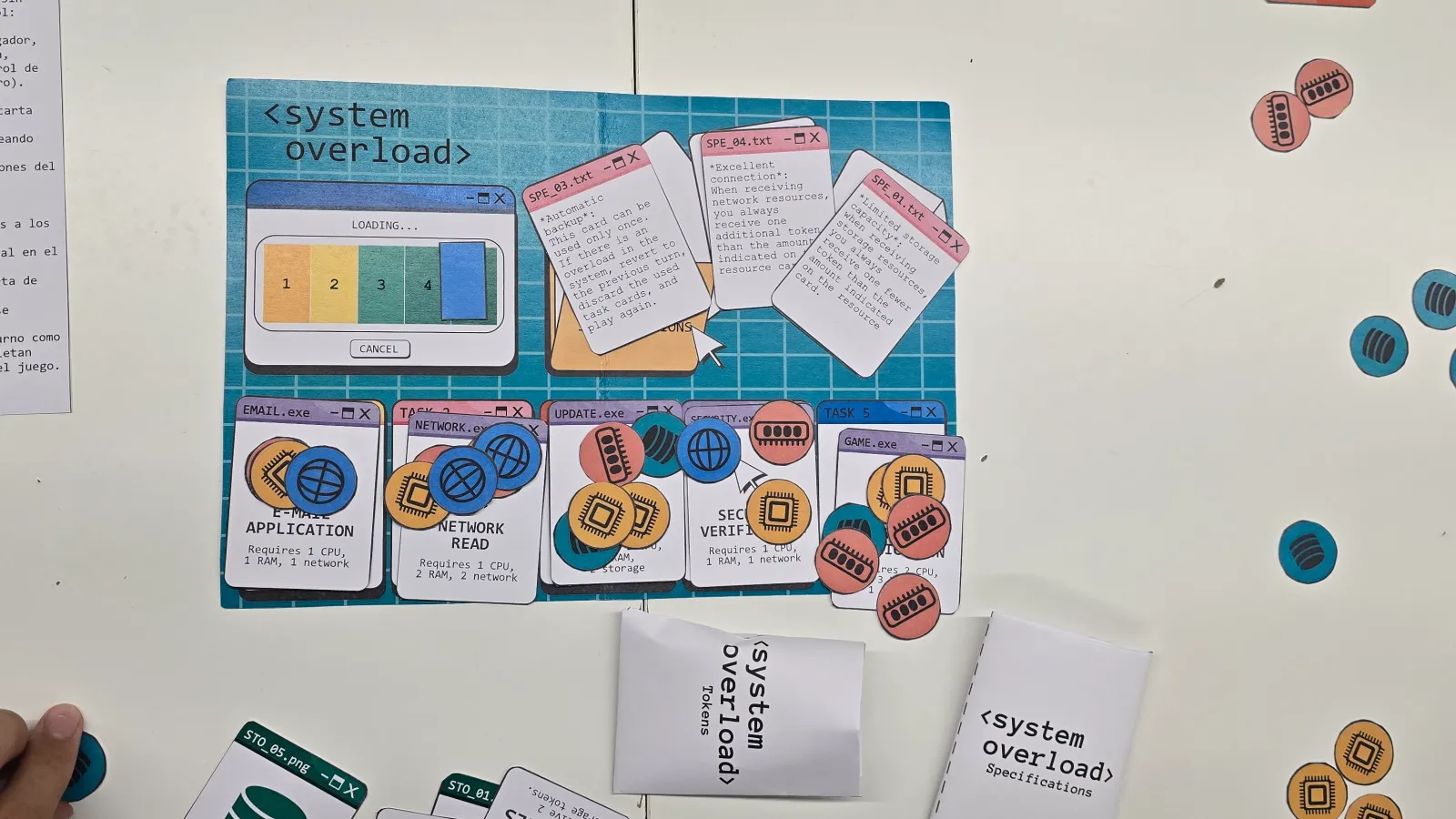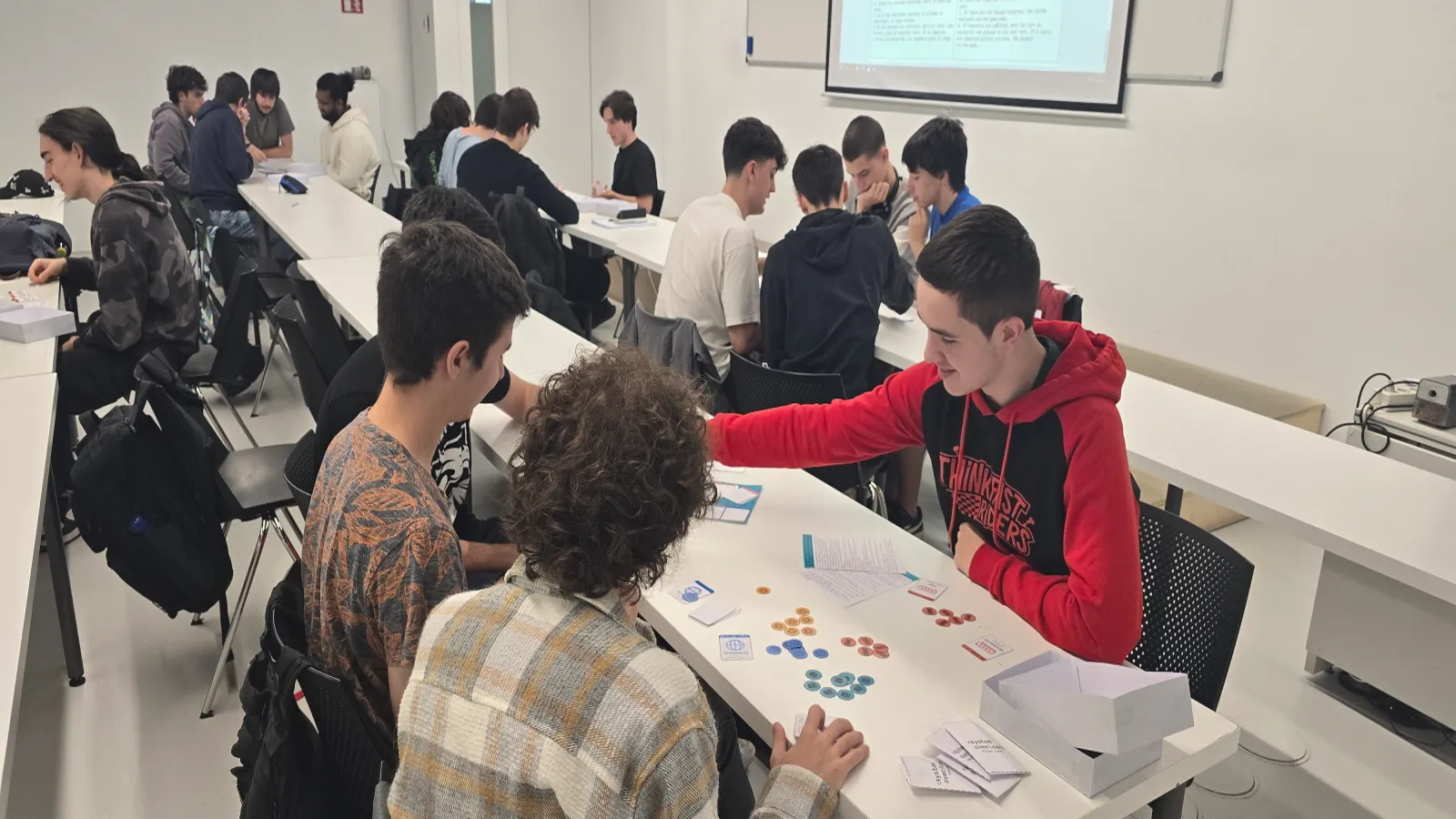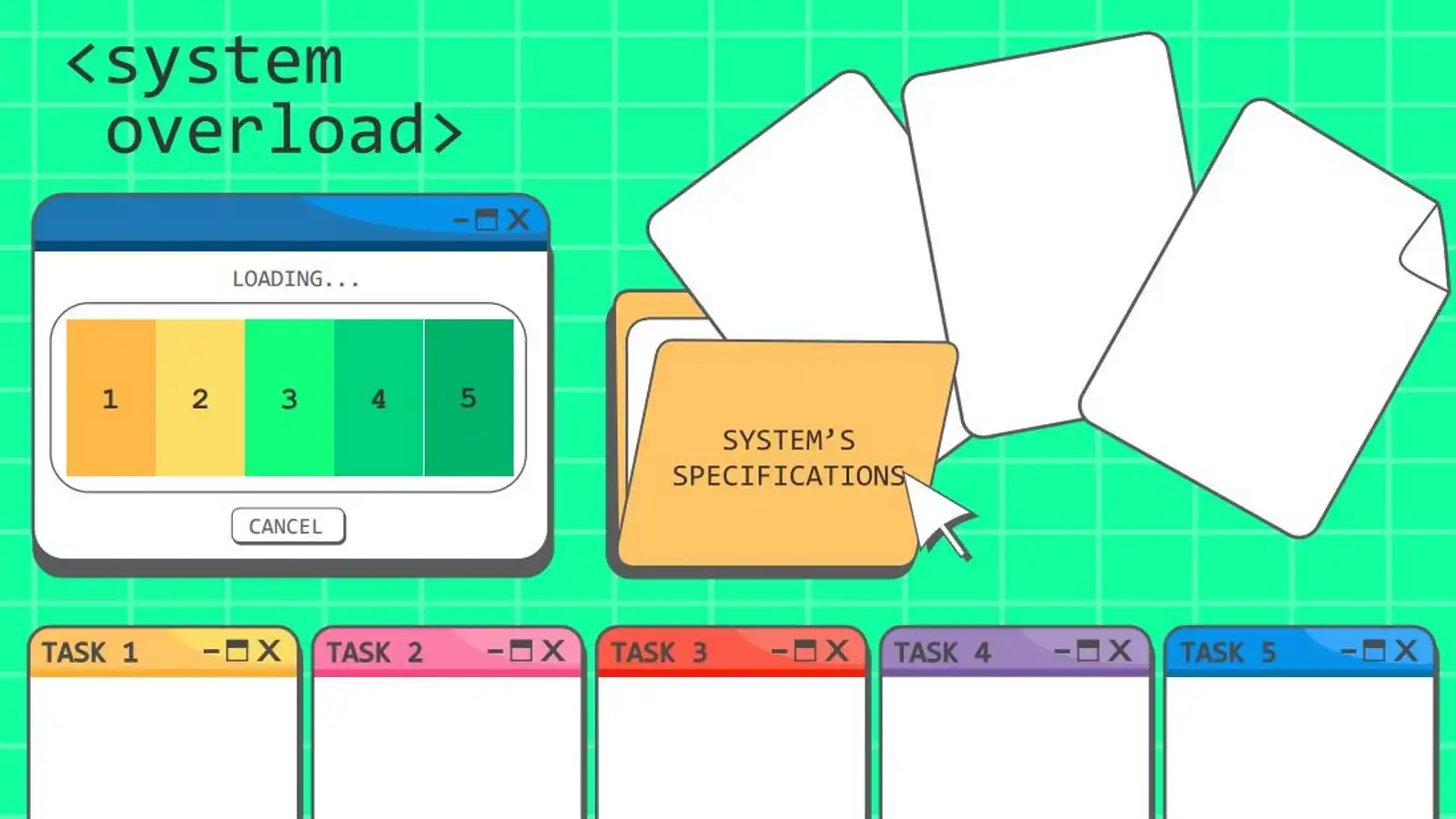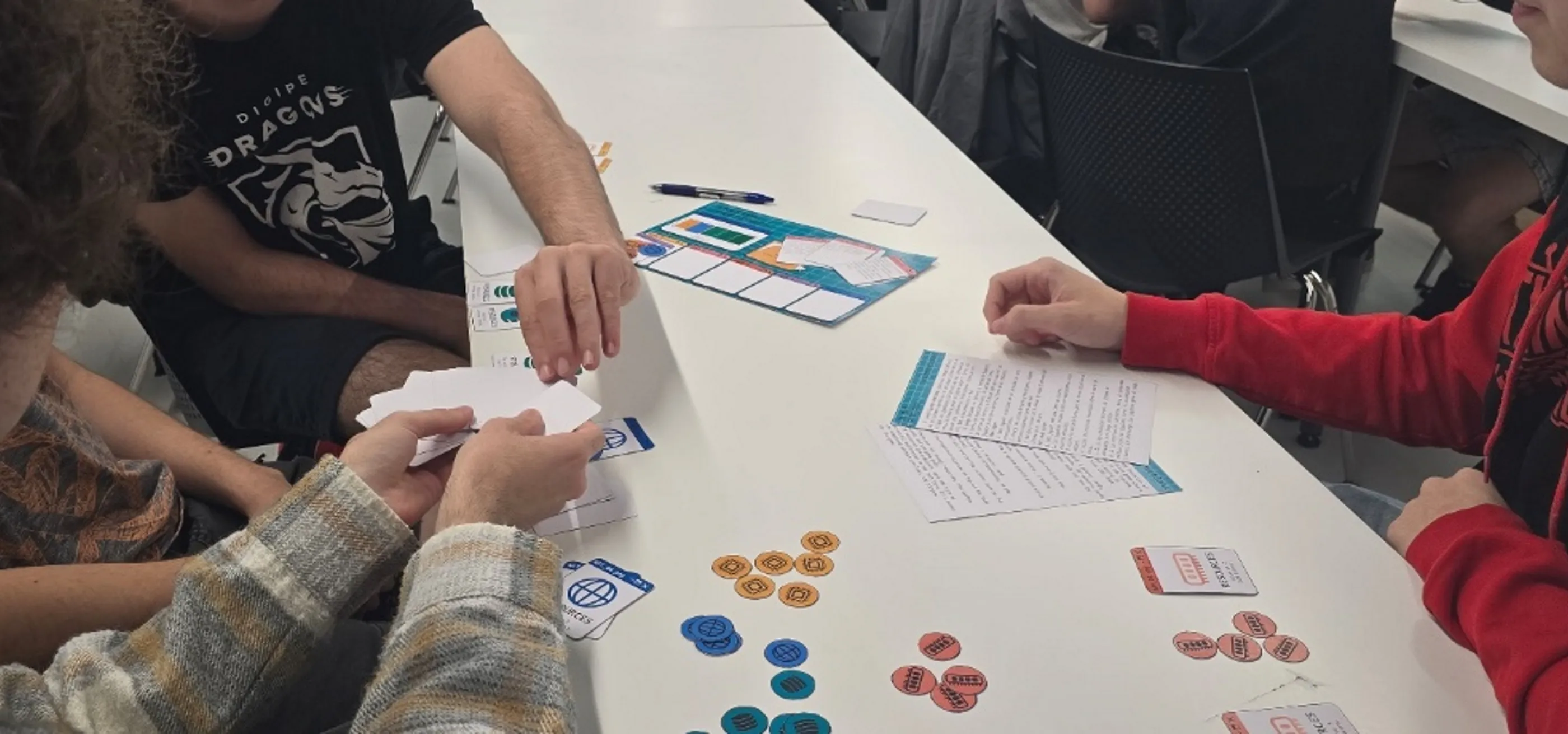“System Overload” is an innovative board game designed by Isabela Nardi, a professor at DigiPen Europe-Bilbao. Isabela teaches key subjects in the first years of the Bachelor’s Degree in Computer Engineering in Real-Time Interactive Simulation (RTIS) and has created this game that simulates the behavior of an operating system.
The objective of the game is to make an abstract topic tangible, such as the internal workings of a computer. After observing that many of her students had difficulties understanding these concepts, created this game to turn this technical difficulty into an accessible and entertaining experience.

In complex fields like programming, it is essential to resort to innovative methods that allow the involvement of students and a solid understanding of the topic.
The game, designed for four players, is based on cooperation. Each participant assumes the role of a part of the computer: CPU, RAM, Storage, and Network. The key is to coordinate to complete tasks without causing a system overload, simulating what happens on a real computer.
For a computer to function, all its parts must collaborate without competing, helping each other. The same thing happens in “System Overload” with the players.
Each game is made up of 5 turns, where players must complete the assigned tasks without the system collapsing and causing an overload. The level of difficulty varies depending on the cards, which indicate whether it represents a more modern or an older system, helping participants understand how each small component affects the overall functioning of a computer.

After its implementation in the first-year classes at DigiPen Europe-Bilbao, Isabela says that her students are more motivated by this topic and that they have discovered something very significant for their professional development, that you can make a game out of literally anything.
Although initially designed for those pursuing an engineering degree, the game can be enjoyed by anyone, regardless of their level of computer knowledge. At the end of the game, all players gain a basic understanding of the resources required to run an application on a system.

From the initial concept to the final development, Isabela was in charge of the entire creative process. Juárez Bento da Silva, a professor at the Federal University of Santa Catarina, supervised the project, collaborating with Isabela during the three months it took her to develop the game.
Game Instructions
- Each player selects a role and receives the corresponding card (CPU, RAM, Storage and Network).
- 3 system spec cards are placed on the board.
- Each player takes a resource card.
- Players receive tokens corresponding to the resources obtained.
- The task card for the current turn is placed on the board.
- The required resources are placed on the task card.
- If there resources aren’t sufficient, the system becomes overloaded and the game ends.
- If the resources are sufficient, mark the turn as successful and move on to the next turn. If five turns are completed without overloading, players win the game.
The game is available in English, Spanish, and Portuguese and can be downloaded through this Creative Commons-licensed link for anyone who wishes to play it. If you are a professor who wants to teach about computer science in a different way, this is your opportunity: Download “System Overload” and immerse yourself in the amazing world of operating systems!
About the Author
Isabela has a bachelor’s and a master’s degree in Information and Communication Technologies from UFSC, along with a double degree in Pedagogy and English. With several years of teaching experience in both Brazil and Spain, she teaches fundamental subjects in the first years of RTIS. She is currently finishing a PhD at the University of Deusto and UFSC: her thesis is related to extended reality in science teaching.

